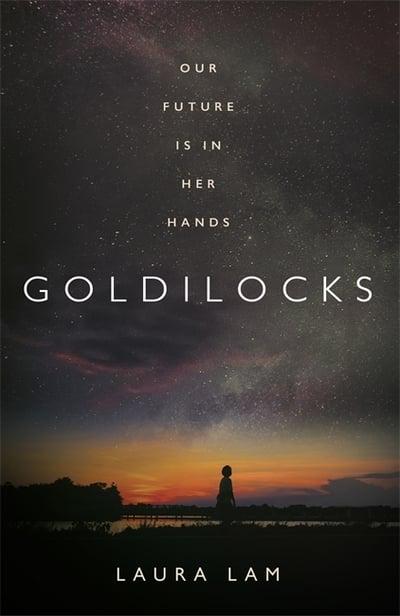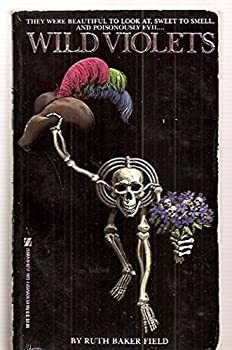I bought this book in the library book sale, based on a logline about orphans surviving on an mysterious island. Little did I know what I was in for.
I HATED this book. It's not a realistic or even unrealistic survival story, it's a preachy allegory that doesn't even make sense on its own terms AND has unnecessary plotlines that seem set up only to frustrate the reader by going nowhere AND has a bad message AND appears to advocate letting toddlers use filleting knives.
There are nine children on the island. There are always nine children on the island. Every year, an otherwise empty boat arrives with a toddler. The toddler gets off the boat. The oldest child on the island gets in the boat, and the boat takes off by itself. That child is never seen again. And so the cycle continues.
The kids have no idea why this is happening, but regard it as a normal fact of life and have been told that if a child ever refuses to get on the boat, the sky will fall. Who told them this? Older kids. Who told those kids? ¯\_(ツ)_/¯
The book opens with the arrival of a new toddler, Ess, who speaks in obnoxious phonetic baby talk, "Whah dis?" and "Ess sooze" (shoes). I HATE baby talk.
Deen, the oldest child, gets in the boat over the tearful protests of the next-oldest child, Jinny. Now Jinny has lost her best friend and is stuck as the primary caretaker for Ess. Lucky for Ess, the island is a paradise. Food is extremely easy to get, there are bees but they don't sting, there are snakes but they don't bite, the sunrises depict beautiful flowers opening and stuff like that, and if you jump off the cliffs a gentle wind will blow you back. None of the kids ever get sick or hurt, except for very minor scrapes.
So clearly, we're dealing with either Heaven or a constructed environment. At first, all signs point to "constructed environment." There's a library of real books from our world, and Jinny marvels over such strange things as "movies" and "candy."
None of the kids have any idea what's off the island or if the books are describing real things, because they all arrived when they were so young that they couldn't explain anything, and by the time they're old enough to talk coherently, they don't remember anything before their arrival.
( Minor spoiler )This is why I kept reading - I was curious WTF was going on with the island and why. Virtual reality? A carefully maintained super-playground? A long-term science experiment? A generation ship? This is all a dream while Jinny's in a coma in the real world?
The kids have very limited knowledge about the world, as they all arrived as toddlers and were taught by preteen kids who were also taught by preteen kids. So a lot of the names for things are ones they made up, because they don't know what the real names are. (This is why their names are all spelled oddly.) Sometimes I liked this, like "jellyblobs" for sea anemones. Other times I did not like it, like "wishing" for peeing/pooping, and the toilet being a "wish cabin" BARF FOREVER
into the wish basin.
This also fails to have a point. In books like
Piranesi or
The Amazing Maurice and his Educated Rodents, we see how specific people construct knowledge in different ways depending on who they are and what they have to draw from. In
Orphan Island, it's all just cute or twee and not drawn from anything specific beyond not knowing how to spell.
But all is not well in cutesy paradise. Jinny is resentful over being stuck with Ess, worried that Ess will get hurt, and doesn't want to get in a boat and sail off to somewhere totally unknown and possibly to her death. None of the other children think those are reasonable concerns for Jinny to have, and everything in the narrative supports the other kids.
When Jinny tries to teach Ess the things the older kids are supposed to teach their toddler charges, Ess doesn't seem to learn them very well, Jinny gets impatient, and the other kids lecture Jinny on how it's very important that Ess learn and Jinny needs to teach her better. (Note that Jinny is the oldest kid, and she's like eleven. In fact, she comes across as the youngest short of Ess, because everyone else is smarter and more competent and calmer than her.)
I hesitate to say that I have a literal trigger for anything in literature, but if I do, it's when a character is criticized or punished or mocked for being unable to do something when they've never been taught how to do it and there's no reason why they should know how to do it, and the narrative seems to think this is fine. (I don't mind if the narrative clearly thinks this is unfair.) How is Jinny supposed to teach Ess how to read? She clearly has no idea. The other kids, disgusted with her inability to do so, take over and successfully teach Ess to read, but we don't know how they do it because it happens off page.
Similarly, Jinny fails at teaching Ess how to swim, largely because she's worried that toddler Ess could drown. The other kids tell her that's impossible, and one of them tosses Ess in the ocean. This successfully teaches her how to swim!
Jinny is worried that if she tries to teach Ess to scale and gut a fish with a sharp filleting knife, she might cut herself. Remember, Ess is a LITERAL TODDLER who talks like "Dinny, pease stay?" The other kids tell Jinny she's being overprotective and to let Ess use the knife. Of course, Ess is fine.
The lessons are
so bad here that I started to feel like I was being gaslit by a book. Okay, sure, in this specific situation the kids are clearly being protected by something and it does seem impossible for them to get hurt, not to mention that toddlers are somehow magically capable of the physical coordination to SCALE AND GUT A FISH, so Jinny actually is being overprotective, buuuuut...
If this was black comedy, I would probably like it. But it's not, and Jinny is presented as being clearly in the wrong. That's not to say that I like Jinny. I actually couldn't stand her. I just hated the other kids even more. Needless to say, none of the characters came across as actual kids.
Oh and also Jinny is explicitly being condescended to and lied to by the other kids - at one point they explain to her that her lost bestie Deen, who she'd thought was an advocate of letting her do things her own way, had secretly told them that the key to smooth relations with Jinny was to let her THINK she was getting her own way, but actually to manipulate her so she only thought that was true UGH UGH UGH.
ANYWAY. So what's up with these boats? Let's leave aside the possible science fiction explanations and look at it as allegory. The children arrive when they're very young and know and remember nothing. They're cared for by others. When they're older but just before they hit puberty, they get in them again and sail away. The allegory seems like the arrival is birth, and the departure is leaving the golden, protected, beautiful land of childhood behind and entering into the uncharted and scary waters of adolescence.
But that is not a good allegory for adolescence. (Even apart from very few people thinking of their childhoods as perfection even if they were happy!) The children have no idea where they're going or whether they'll ever see any of their friends again or even if they'll survive. Adolescence is kind of an unknown, but not to that extent. You're still allowed to see your younger friends! The departure feels much more like an allegory for death.
So is Jinny's desire to not get on the boat an allegory for a child afraid of becoming a teenager? Or is it an allegory for a person refusing to face death? This is a children's book, mind, so if it's the latter that's a little disturbing.
Orphan Island feels like a preachy, message-y book. But what's the message? Well...
( Are you fucking SERIOUS )In conclusion, fuck the baby talk, fuck the misspelled names, and fuck wishes that come out of your ass.
My favorite review from Goodreads: "We listened to this on audiobook, and upon completion my children wanted to stop the vehicle and put the discs under the car and run them over. [...]
We ranted for at least a half an hour. We woke up the next morning and one of my son's first words were, "I'm still angry about the book."

















